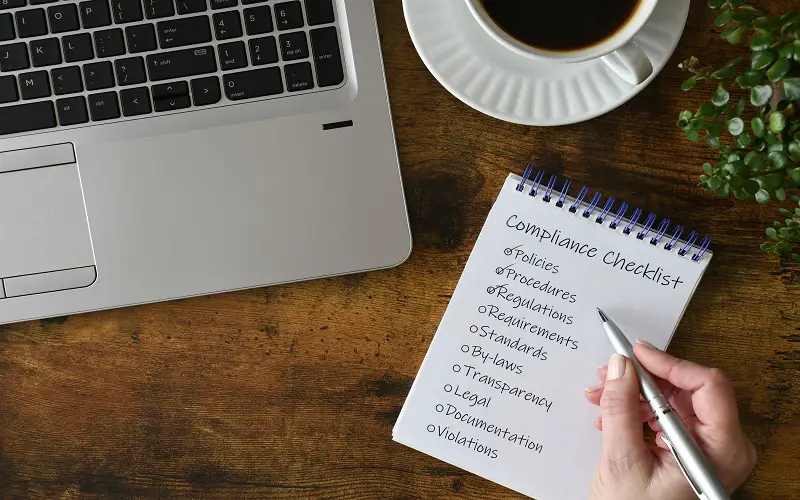Legal compliance is an important thing to tackle and stay on top of in business. Rules and regulations change regularly and as a business adapts and grows over time, you’ll find yourself having to face frequently changing regulations. New rules are put in place to protect customers and employees, so they’re drafted in for a clear purpose.
The likes of AI and surveillance have prompted calls for stricter rules in the workplace and large companies like Meta have found themselves in hot water over breaking data regulations. With stories like this cropping up regularly, it can feel overwhelming, but it doesn’t have to be. Here’s how you can stay on top of legal compliance while running a business.
What is legal compliance in business?
Compliance involves businesses, regardless of their size, and any employees, complying with national and international laws. Areas of a business where compliance is important include finance, tax, payroll, employment law, GDPR, health and safety and more.
The basic regulations are outlined in the Companies Act 2006 and there are additional industry and sector-related regulations you’ll need to bear in mind. These often involve licenses and permissions in that field. An example includes digital marketing and allowing respondents to choose how you process their information, or allowing people to opt out of receiving marketing emails.
Why is it important to be legally compliant?
Legal compliance is there to support and protect people, as well as to regulate businesses so that they are operating fairly. A lack of compliance can land you in trouble, with the prospect of facing fines or legal penalties. That’s where legal support can play a role.
New patterns in the world of work mean it’s important not to let things slip under the radar – for example, the prospect of people working from home requires attention to ensure that staff are still meeting health and safety regulations. Other examples include GDPR, which has required more stringent compliance in light of the 2018 General Protection Regulation (GDPR) issued by the EU.
Steps to take to ensure legal compliance
Getting legal support will ensure that your business and business decisions are fully compliant, which can be particularly helpful when regulations change. However, there are other steps you can take in the meantime. Having a trustworthy compliance team will also aid the situation, as it can be tricky to keep up with ever-changing rules and regulations if you haven’t been professionally trained in this area. It can also be beneficial to complete an internal audit.
Seeking out reliable HR resources and even working with different organisations will help to ensure legal compliance. By doing this, you can benefit from free industry updates in the shape of newsletters, workshops or online training resources.




